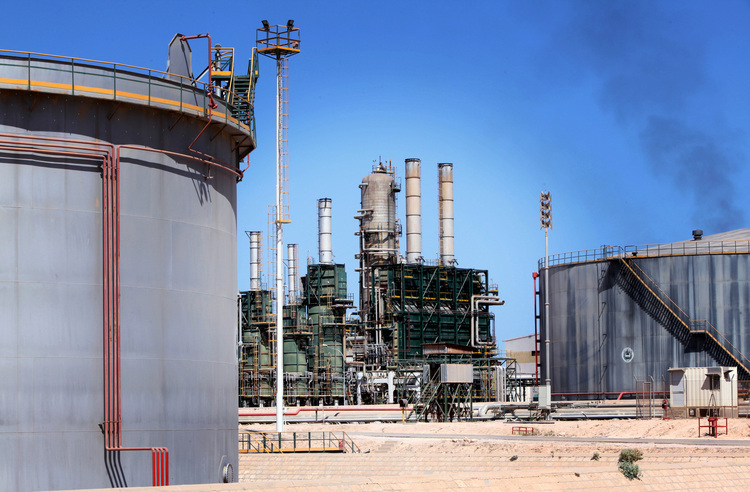
A militia group has shut down a number of Libyan fields, while conflict between the oil ministry and the National Oil Corp. (NOC) heightens in the run up to the presidential election.
Libya is due to vote on December 24. However, a number of deadlines have been missed and it is unclear who of the candidates might be on the ballot paper. As such, pressure is mounting to push back the vote.
In the meantime, instability is on the rise.
A group said to be linked to the Petroleum Facilities Guard (PFG) closed the Sharara export pipeline on the morning of December 20. The link runs from the Sharara field to the Zawiya terminal.
NOC has confirmed that the Sharara, El Feel, Al Wafa and Hamada fields are not producing. The company said such closures happen when the oil price rises.
The Zawiya refinery will shut down within days, NOC said. Furthermore, disruption in gas supplies has knocked out 2,500 MW of power.
Sharara was producing 280,000 barrels per day. It is the single largest field in Libya. Libya was producing 1.16 million bpd in October, according to OPEC’s secondary sources.
One report said the group had also closed the export pipeline for the Wafa field, which is close to the Algerian border. It was also reported that work had stopped in the Nafusa field and some additional licences.
Sharara and Wafa are both in the southwest of Libya.
OilX reported a reduction of 300,000 bpd in Libyan volumes, with the consultancy tracking flaring as a means of assessing the impact.
Ministry split
In the meantime, NOC issued a statement saying the Ministry of Oil had made flawed and invalid decisions. NOC was responding to a move by Minister Mohamed Oun to suspend NOC chairman Mustafa Sanalla.
NOC said the minister’s decision was invalid. The minister had “more personal than professional motives”, the company said. These reflected “a great shortcoming … the minister insists on transgressing his powers and practicing a policy of misinformation”.
NOC said it retained the legal right to defend its position, while sustaining production and revenues. The company will “not allow anyone to infiltrate, politicise or drag it from the areas of neutrality that it has adhered to for years”. The company “will confront the delusional firmly and forcefully”.
The move comes as Oun was reported by Bloomberg to be considering new contracts for oil companies. The news agency said Libya may give bonuses to companies that meet targets, and penalise those that fall short. It aims to increase production to 1.4 million bpd by mid-2022.
If the government was able to pass a budget and fund the oil sector, Libya would reach its goals, he told Bloomberg. Contracting companies is one alternative.
Updated on December 21, at 10:45 am with NOC confirmation and OilX insight.
